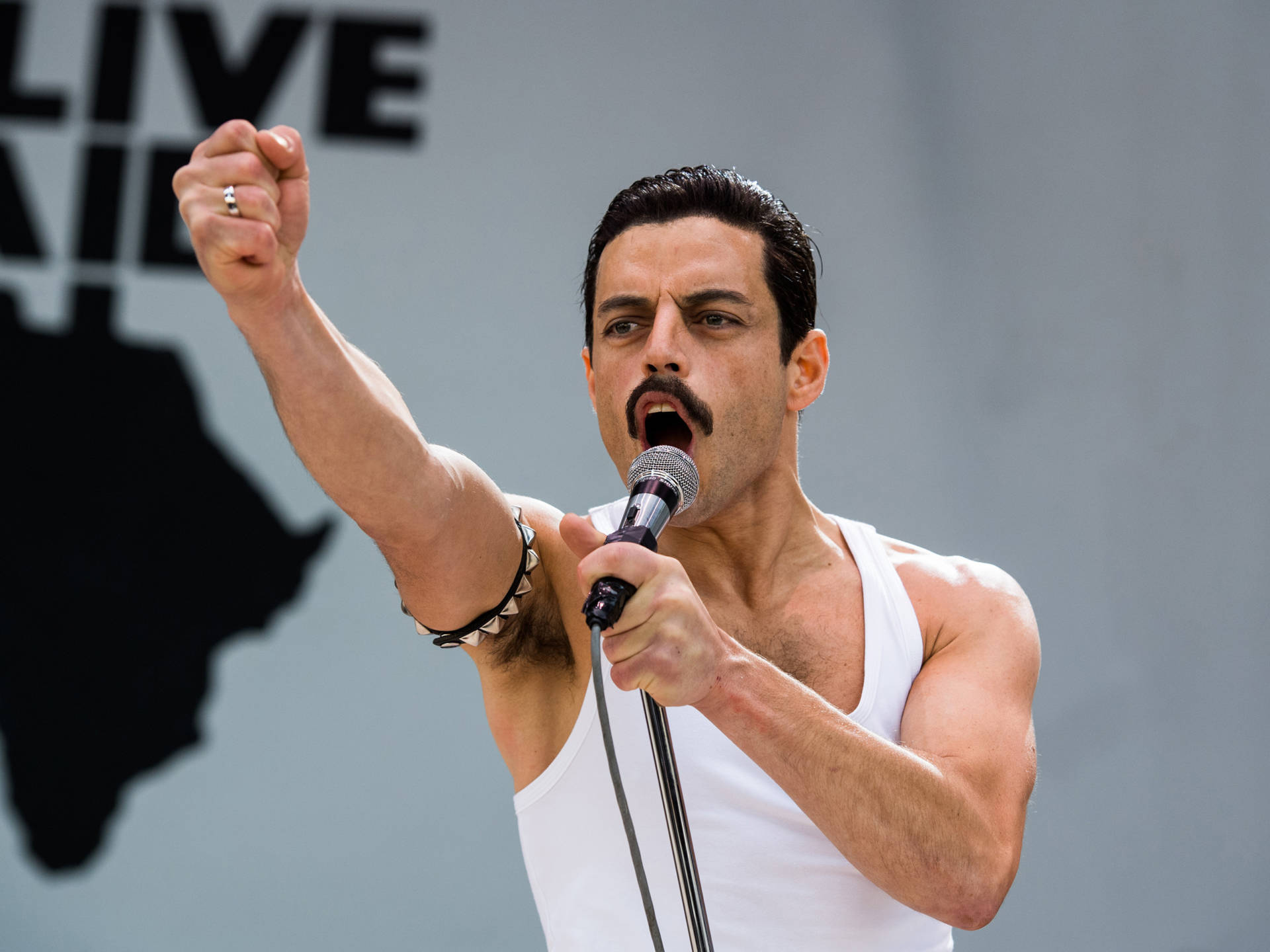But in front of a crowd, it was a different story: “When [Mercury] gets out on the stage, he holds everyone’s attention and says, ‘Hey, I may have been an outcast and a misfit, and I may feel like I don’t belong, but here on this stage, we belong together,'” Malek says. “It is the most beautiful thing to see realized.”
Click on the audio link to hear the full Fresh Air interview with Rami Malek and read interview highlights below.
Interview Highlights
On how audio engineers for the film mixed together Mercury and Malek’s vocals
It’s actually an amalgamation. The large majority is Freddie Mercury. I went out every day and sang at the top of my lungs, because that’s the only way to match what he’s doing. He’s giving everything 110 percent, always. And in order to sync it up properly they use bits of my voice. … It will lead in with my voice, and then pick up the majority using Freddie Mercury’s voice.
What I quickly realized was no one can sing like Freddie Mercury, and nor can I. It’s very difficult to get my voice up to those high notes, and at some point, my voice breaks. And it breaks pretty quickly when I’m trying to ascend what Freddie Mercury can do.
On shooting Queen’s iconic set at the 1985 Live Aid charity concert
It was the first thing we shot: Live Aid. Day one. We came out and it was that massive crane shot that goes through the audience and comes right up around the piano and opens to Freddie Mercury, myself playing him, singing “Bohemian Rhapsody.” … Talk about a baptism by fire! I had never worked that hard in my life on one particular piece of filming.
Every day I spent hours with a movement teacher. … I always wanted to keep it very spontaneous, but at the same time, honor this fantastic performance that he and Queen gave. … There are things he does with that microphone that defy what the mere mortal can do. He whips around with it with violence at times, with elegance he uses it as the air guitar — sometimes, right in front of one of the greatest guitar players of all time, Brian May. So as Brian May is crushing it on guitar, here is Freddie Mercury air-guitaring, and it’s still a magnificent thing to watch. It’s so compelling and only he could get away with that.
On wearing prosthetic teeth to play Mercury
The teeth were difficult to get used to in the beginning. Initially, I put them in my mouth a year prior to shooting and I immediately felt insecure. I felt like I was on my back foot, in a way. I didn’t feel like myself. …
It was a feeling of insecurity that I had to cover them up as well. I had been watching so much footage of him. You see him covering up his teeth so often that I thought, “How am I ever going to do that?” Well, as soon as those teeth went in, it was second nature. I found myself covering them up so often. My lips would dry up, so I found myself licking my lips as he did.
But another thing happened: I started to compensate physically by holding my posture better, elongating my body, sitting up very straight, and that’s something you also see him do. And I don’t know if that was something that affected him, or he was born with the elegance that he has, but it did give me a way into understanding a little bit more about him.
On how he relates to Mercury as a child of immigrants pursuing a life in the arts
I had to demystify him somehow. The way to do that was looking at his background, and I thought to myself, “Here’s a young man [who] immigrated to a country, defied all obstacles to do what he loved.” That was one thing that I could understand.
Not to compare myself to him in any way, shape or form, but I am a first generation American. My family came from Egypt and sought a better life for their children in the U.S. Obviously, like so many people, they would have loved for us to be doctors and lawyers. … It was very difficult to convince anyone that I wanted to do this, and that I could do this.

9(MDAxOTAwOTE4MDEyMTkxMDAzNjczZDljZA004))

